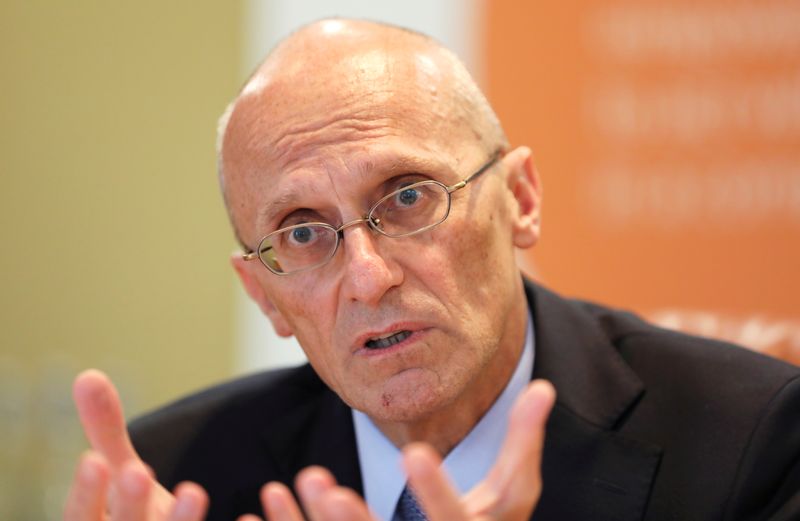
© Reuters. FILE PHOTO: Andrea Enria, chairperson of the European Banking Authority, speaks at Reuters Summit interview in London, Britain, September 25, 2017. Picture taken September 25, 2017. REUTERS/Afolabi Sotunde/File Photo
ISNPY
+0.06%
Add to/Remove from Watchlist
Add to Watchlist
Add Position
Position added successfully to:
Please name your holdings portfolio
Type:
BUY
SELL
Date:
Amount:
Price
Point Value:
Leverage:
1:1
1:10
1:25
1:50
1:100
1:200
1:400
1:500
1:1000
Commission:
Create New Watchlist
Create
Create a new holdings portfolio
Add
Create
+ Add another position
Close
MILAN (Reuters) – The European Central Bank (ECB) will ask banks to provide weekly liquidity data from September so that it can carry out more frequent checks on their ability to ward off potential shocks as interest rates rise, the ECB supervisory chief said on Saturday.
In an interview published by Milano Finanza, Andrea Enria said that European banks were stronger than before but that financial markets were still in a “delicate phase” due to the Ukrainian war, higher inflation and fast-rising interest rates.
All these factors can increase liquidity and funding risks, Enria said, adding that the ECB would be very focused on this in the stress tests and other supervisory processes underway.
“We have decided to send banks, starting in September, a request for information on a weekly basis, in order to have fresher data that will allow us to better monitor liquidity developments,” Enria said.
Currently banks are required to provide liquidity information to the ECB on a monthly basis.
The results of the bank stress tests will be unveiled in the next few days, and Enria said they would show that the European lenders can face a potential financial crisis from a stronger footing, with higher capital levels and more solid and reliable assets.
Asked if in Italy there was a need for a third big banking group besides UniCredit and Intesa Sanpaolo (OTC:ISNPY), Enria said there was margin for further consolidation as in other European member states.
Source: Investing.com

























